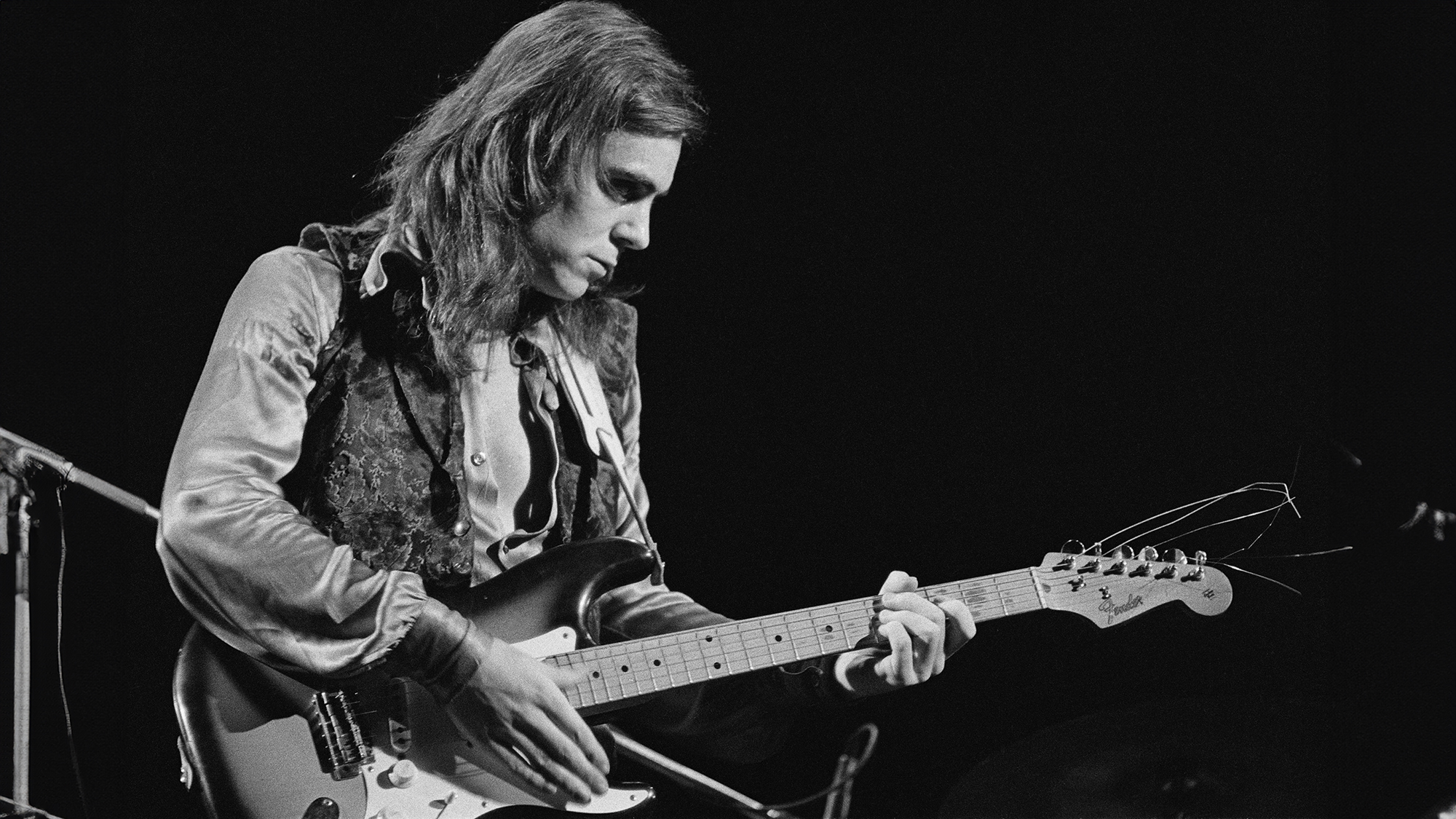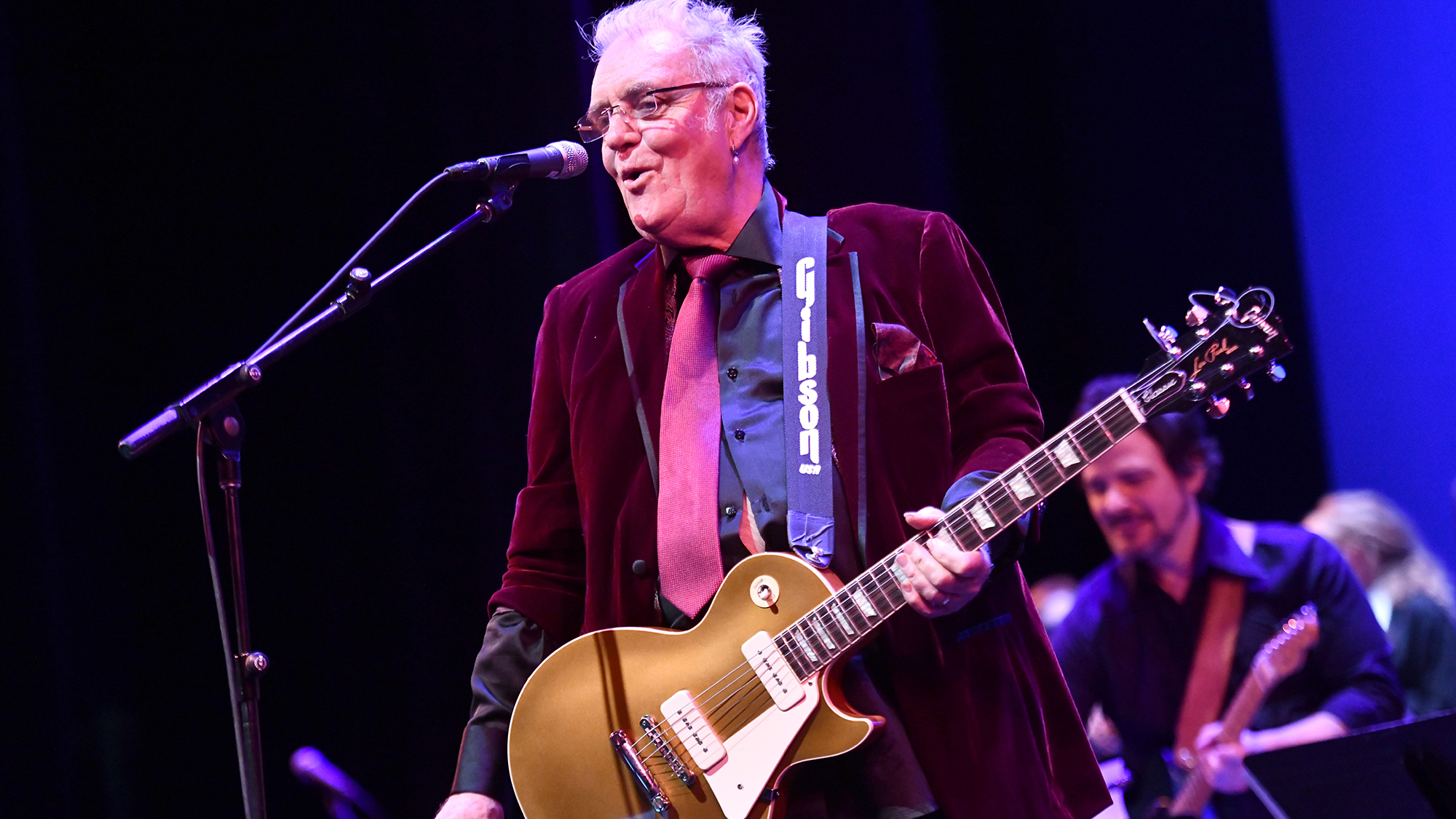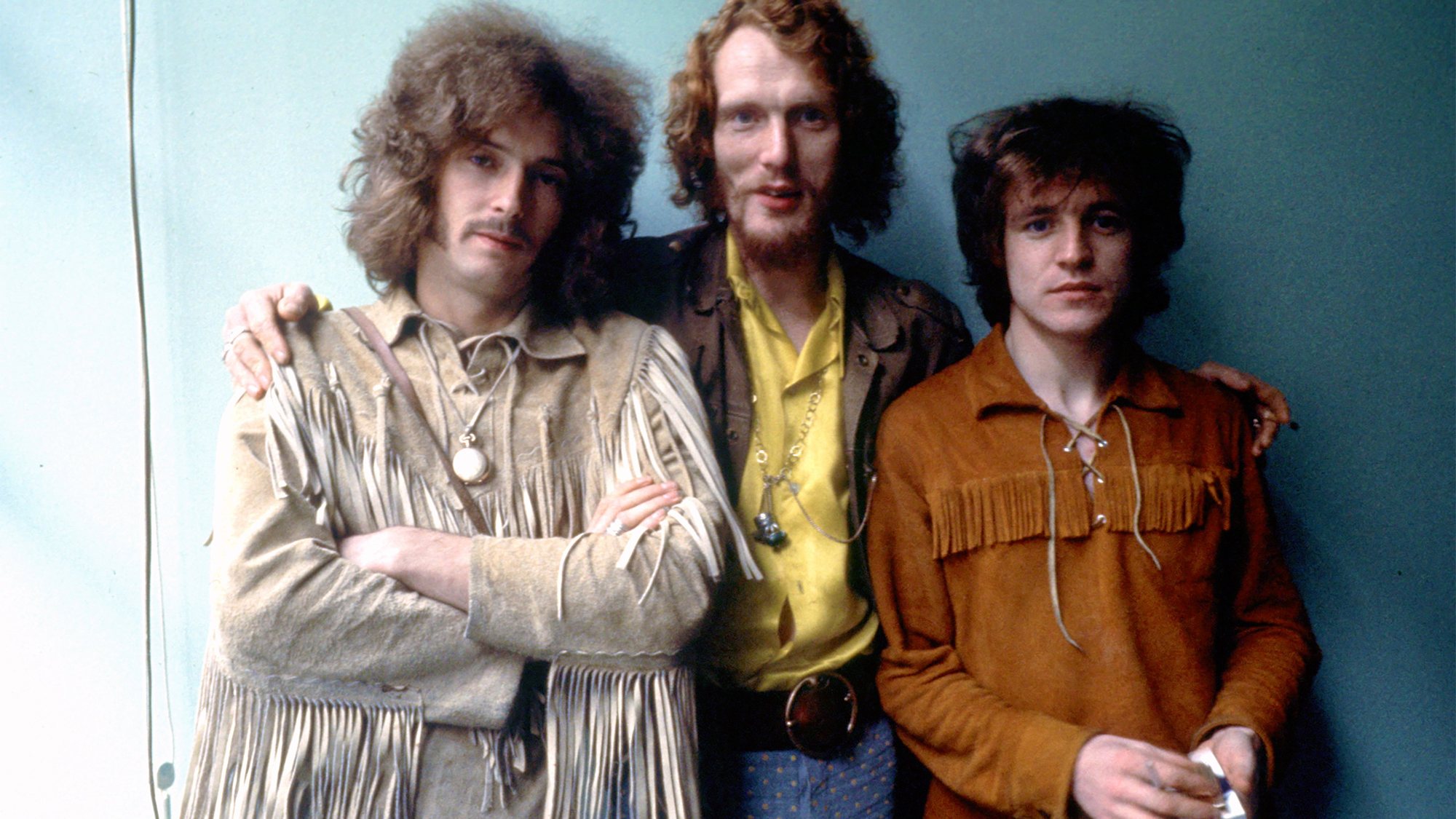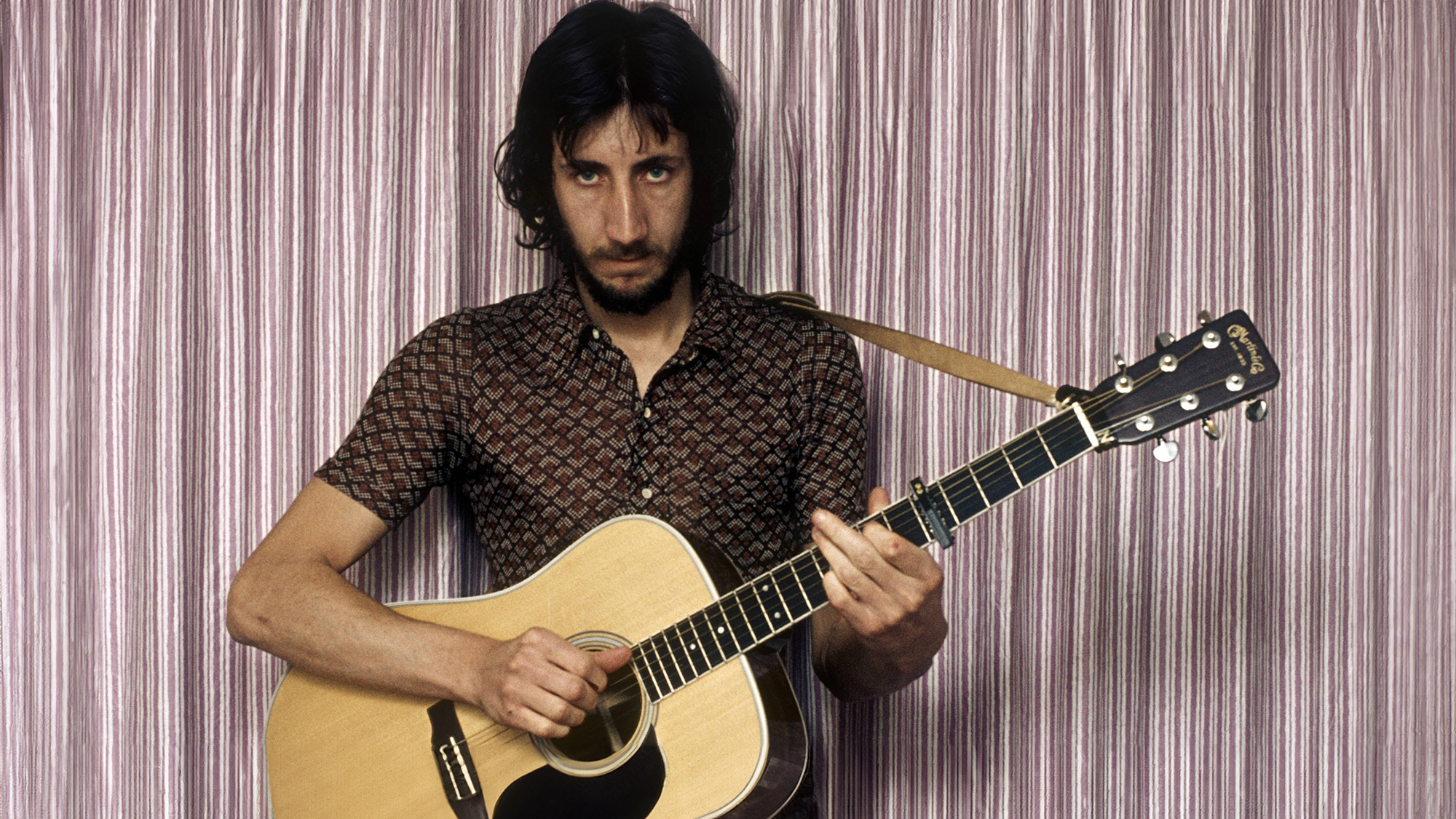"There are only three things happening in England: the Rolling Stones, the Beatles and Terry Reid.” Guitarist Terry Reid, who rejected Jimmy Page's invitation to join Led Zeppelin, has died
Best known for a voice that earned him the nickname Superlungs, Reid was Page's first choice for a singer in Led Zeppelin

"There are only three things happening in England,” soul singer Aretha Franklin declared in 1968. “The Rolling Stones, the Beatles and Terry Reid.”
In a career that spanned 60 years, British guitarist Terry Reid rejected two notable close calls with fame. As the Yardbirds segued into the New Yardbirds in 1968, Jimmy Page asked Reid, then 18, to become the group’s new singer. Reid, whose solo career was turning hot, put stipulations on the agreement. When Page declined, Reid was gracious enough to suggest he call a young belter named Robert Plant for an audition. Together, Page and Plant would launch Led Zeppelin.
The following year, Ritchie Blackmore asked Reid to become Deep Purple’s new singer after founding vocalist Rod Evans quit.
But Reid, whose death was announced August 5, once again let opportunity pass him by, preferring to go his own way as a solo artist.
He certainly cut a unique path. Nicknamed Superlungs for his powerful falsetto voice, Reid was considered one of the best vocalists in an era full of mighty singers with remarkably high ranges, including Plant, Steve Winwood and Steve Marriott. He was also a guitarist of considerable talent and skill.
Although fame would elude Reid throughout his career, he enjoyed acclaim among his peers, who included not only Franklin but also Jackson Browne, Bonnie Raitt and Don Henley, on whose albums he appeared. He was also recognized for his songwriting by groups and artists that include Cheap Trick, Jack White, Chris Cornell, and Crosby, Stills & Nash.

Years before Page entered the picture, Reid was on the London scene as a guitarist with Peter Jay and the Jaywalkers, an instrumental group that opened for leading acts of the day and were included on a 1966 group tour featuring the Rolling Stones, Ike and Tina Turner, and the Yardbirds.
All the latest guitar news, interviews, lessons, reviews, deals and more, direct to your inbox!
Once the band broke up, Reid signed as a solo act with producer Mickie Most, whose artists included the Yardbirds. Reid released his solo debut, Bang Bang, You’re Terry Reid, in 1968.
It was around then that Page became interested in him as a vocalist. The story goes that Reid had already committed to perform as a support act on the Rolling Stones’ celebrated 1969 U.S. tour.
“I was very friendly with Keith Richards of the Rolling Stones,” Reid recalled in a 2023 interview with Classic Rock. “Keith asked me to support the Stones in the States, but then shortly afterward Jimmy wanted me to join his new band. I was torn.
“In the end, I put the ball in Jimmy’s court. I said, ‘You’d better speak to Keith and tell him I’m not going.’
“But Jimmy bottled it. He said, ‘I’m not having him shoot me in the fucking leg.’ Even then, Keith had a reputation.
“So I ended up going to America with the Stones. I even played with them at Altamont,” he added, referring to the group's infamous December 6, 1969 free concert, where several concertgoers were killed.

While Reid did go on the Stones’ 1969 U.S. tour, it wasn’t even planned at the time Page would have invited him to join the New Yardbirds in 1968. However, at that time Reid would have been scheduled to go on Cream’s last U.S. tour, which took place in fall 1968. According to one version of the story behind his lost Led Zeppelin opportunity, Reid asked Page to pay him what he would make on the Cream tour. Page balked and rescinded his offer. Perhaps the Stones angle made for a more interesting story?
In the end, Reid suggested Page audition Plant, who had impressed him after he saw his group, Band of Joy, perform as a support act at one of his shows. Page complied, and the rest is history.
Meanwhile, Reid broke his ties with Most and landed a contract at Atlantic Records. While there he recorded his 1973 album, River, with a band consisting of future Jackson Browne accompanist David Lindley.
While usually little is said about Reid as a guitarist, he was a fine blues-based player who owned one notable guitar: a white 1952 Fender Telecaster he’d purchased in Chicago during his time on the road with Cream. By the time the tour made its way to New York City's Madison Square Garden, the Tele’s neck pickup had died. Reid took it to Manny’s, where a humbucker was installed and has remained ever since. The guitar is currently owned by Joe Bonamassa, Reid’s friend and a fan.
Although Reid’s solo career never took off with the public, his work with Lindley gave him a connection to the West Coast and session work with Browne, Raitt and Henley. His 1991 album, The Diver, yielded a cover of the Spencer Davis Group’s “Gimme Some Lovin’,” which also appeared on the soundtrack for the 1990 Tom Cruise movie Days of Thunder. He subsequently had songs in movies like the Rob Zombie–directed The Devil’s Rejects and the crime drama Wonderland, both from 2003, as well as the 2017 film Win It All. He landed on the soundtrack to the 2009 movie Up in the Air courtesy of his song “Be Yourself,” recorded by Graham Nash for his 1971 solo album, Songs for Beginners.
Despite his low profile with U.S. record buyers, Reid was a big attraction as a club performer in the U.K. starting in 2002. Billed by one venue as “The Man With a Hell of a Story to Tell,” he became a legend in part because of the opportunities he’d forfeited years earlier.
He and his band regularly played Ronnie Scott’s in London, where they would be joined by a who’s-who of music’s greats. He also held a four-year Monday residency at the Joint in Los Angeles, where friends — including Plant, Richards, Roger Daltrey and others — dropped in to perform when they were in town.
Reid was battling cancer when he died and was forced to cancel a 2025 tour for treatment. He was 75. The exact date of his passing was unknown at the time of publication.
Bonamassa was among the first to pay tribute to Reid.
“Goodbye my friend,” the guitarist wrote on Instagram in the early morning hours of August 5. “It was an honor to get to know you as friend and a musical mentor. I will miss our hangs and stories in Palm Springs. One of the greatest to ever do it and a beautiful person and soul. Rest in peace Terry Reid. My deepest condolences to his family on this terrible day.”
A post shared by Joe Bonamassa (@joebonamassa)
A photo posted by on
Christopher Scapelliti is editor-in-chief of GuitarPlayer.com and the former editor of Guitar Player, the world’s longest-running guitar magazine, founded in 1967. In his extensive career, he has authored in-depth interviews with such guitarists as Pete Townshend, Slash, Billy Corgan, Jack White, Elvis Costello and Todd Rundgren, and audio professionals including Beatles engineers Geoff Emerick and Ken Scott. He is the co-author of Guitar Aficionado: The Collections: The Most Famous, Rare, and Valuable Guitars in the World, a founding editor of Guitar Aficionado magazine, and a former editor with Guitar World, Guitar for the Practicing Musician and Maximum Guitar. Apart from guitars, he maintains a collection of more than 30 vintage analog synthesizers.

